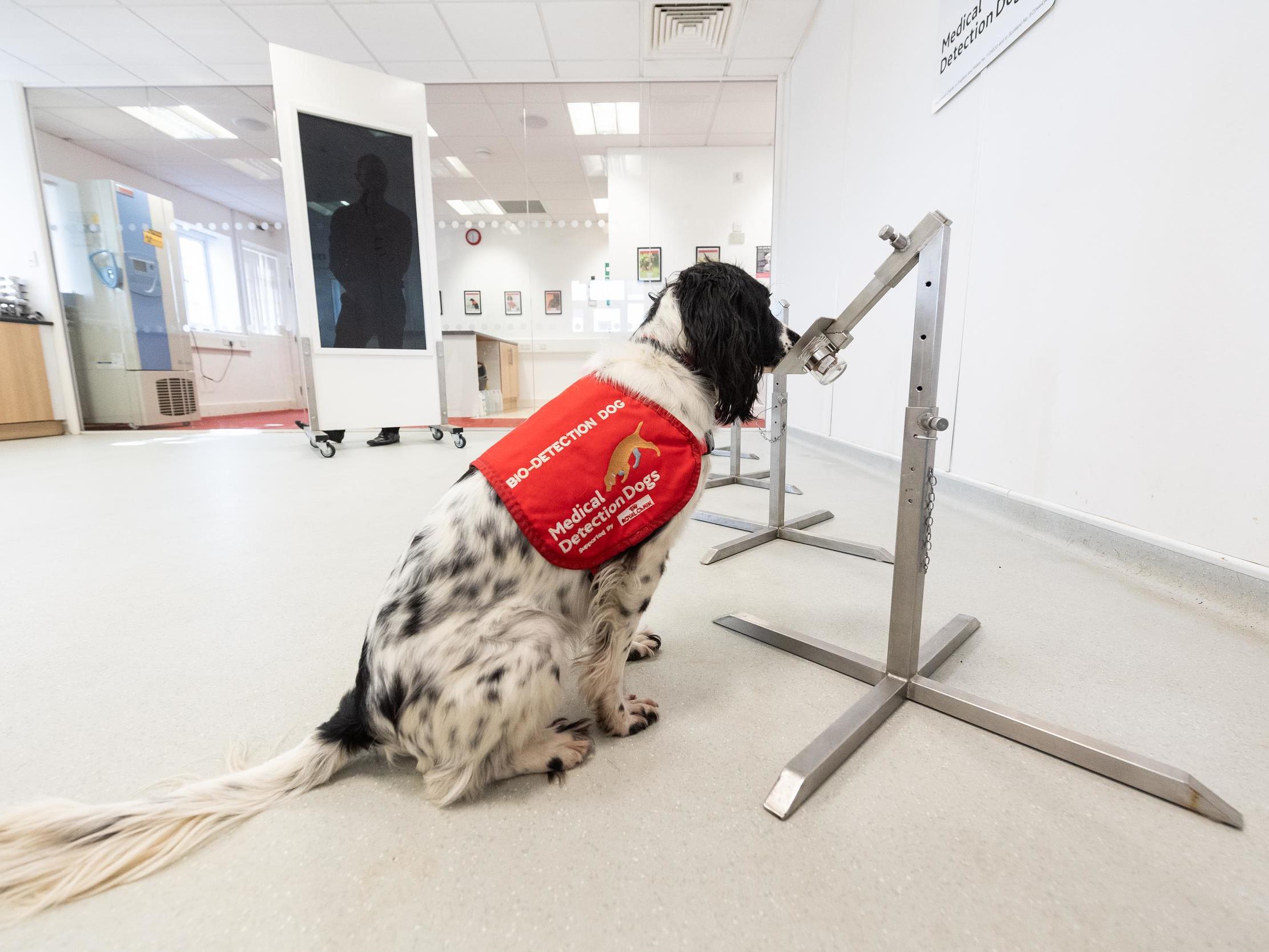Specially trained ‘Covid detection dogs’ set to sniff out coronavirus
UK universities begin early phases of canine training

Your support helps us to tell the story
From reproductive rights to climate change to Big Tech, The Independent is on the ground when the story is developing. Whether it's investigating the financials of Elon Musk's pro-Trump PAC or producing our latest documentary, 'The A Word', which shines a light on the American women fighting for reproductive rights, we know how important it is to parse out the facts from the messaging.
At such a critical moment in US history, we need reporters on the ground. Your donation allows us to keep sending journalists to speak to both sides of the story.
The Independent is trusted by Americans across the entire political spectrum. And unlike many other quality news outlets, we choose not to lock Americans out of our reporting and analysis with paywalls. We believe quality journalism should be available to everyone, paid for by those who can afford it.
Your support makes all the difference.Specially-trained “Covid detection dogs” could soon be sniffing out coronavirus in infected people in the UK, if a trial by British researchers goes to plan.
Canines’ acute sense of smell is already used to detect certain cancers and other diseases, and it is hoped that the animals can turn their noses to helping with the ongoing pandemic.
Some diseases have a distinctive odor that it not detectable to most humans but which dogs – with their strongly developed sense of smell – find obvious.
Current medical detection dogs working with other diseases can screen as many as 250 people per hour and can be trained to detect the odor of a disease at the equivalent dilution to one teaspoon of sugar in two Olympic-sized swimming pools of water.
Professor James Logan, lead researcher for the work and Head of the Department of Disease Control at the London School of Hygiene & Tropical Medicine, said he was “hopeful” that the government-backed project could bear fruit.
“Our previous work has shown that malaria has a distinctive odour, and with Medical Detection Dogs, we successfully trained dogs to accurately detect malaria. This, combined with the knowledge that respiratory disease can change body odour, makes us hopeful that the dogs can also detect Covid-19,” he said.
“I would like to thank the UK government for their support of this pioneering research through this funding. We’re excited to do this trial, and confirm whether these bio detection dogs can be used to screen for COVID-19.
“If successful, this approach could revolutionise how we detect the virus, with the potential to screen high numbers of people.”
Covid-19 is not thought to be a health threat to dogs, though they can test positive for it. It is hoped that the trained canines could help complement standard testing and act as an early warning system for symptomless people, perhaps in public settings.
Dr Claire Guest, co-Founder of the NGO Medical Detection Dogs said that canines had “the potential to help by quickly screening people, which could be vital in the future”.
“We have already demonstrated our expertise in canine disease detection by successfully training dogs to detect diseases like cancer, Parkinson’s and malaria, and we apply that same science to train life-saving Medical Alert Assistance Dogs to detect odour changes in individuals caused by their health condition,” she said.
“We are sure our dogs will be able to find the odour of Covid-19 and we will then move into a second phase to test them in live situations, following which we hope to work with other agencies to train more dogs for deployment. We are incredibly proud that a dog’s nose could once again save many lives.”
Ethics approvals for the project are being finalised by the London college, which is also working with Durham University. Testing with live samples of the virus is expected to proceed soon once this is complete.
Minister for Innovation Lord Bethell said: “Bio-detection dogs already detect specific cancers and we believe this innovation might provide speedy results as part of our wider testing strategy.
“Accuracy is essential so this trial will tell us whether ‘covid dogs’ can reliably detect the virus and stop it spreading.”
Subscribe to Independent Premium to bookmark this article
Want to bookmark your favourite articles and stories to read or reference later? Start your Independent Premium subscription today.
Join our commenting forum
Join thought-provoking conversations, follow other Independent readers and see their replies
Comments